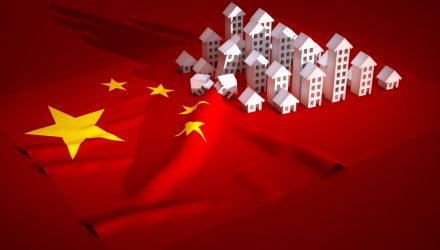Global real estate prices continue to soar, including China, where investors can get exposure with exchange-traded funds (ETFs) like the Global X MSCI China Real Estate ETF (CHIR).
Meanwhile, prices continue to reach newer highs in China’s real estate market, prompting the government to step in to try and reverse the trend.
“After a years-long campaign to tame property prices, China is upping the ante to break a stubborn cycle of gains that’s made homes increasingly unaffordable,” a Bloomberg article said. “In recent days, China jacked up mortgage rates in a major city, vowed to accelerate the development of government-subsidized rental housing, and moved to increase scrutiny on everything from the financing of developers and newly-listed home prices to title transfers.”
CHIR seeks to provide investment results that generally correspond to the price and yield performance, before fees and expenses, of the MSCI China Real Estate 10/50 Index. The fund invests at least 80% of its total assets in the securities of the underlying index and in ADRs and GDRs based on the securities in the underlying index.
The underlying index tracks the performance of companies in the MSCI China Index (the “parent index”) classified in the real estate sector, as defined by the index provider. Summarily, ETF investors get the following:
- Targeted Exposure: CHIR is a targeted play on the Real Estate Sector in China – the world’s second-largest economy by GDP.
- ETF Efficiency: In a single trade, CHIR delivers access to dozens of real estate companies within the MSCI China Index, providing investors an efficient vehicle to express a sector view on China.
- All Share Exposure: The Index incorporates all eligible securities as per MSCI’s Global Investable Market Index Methodology, including China A, B, and H shares, Red chips, P chips, and foreign listings, among others.
Government’s Attempt to Control Real Estate
China’s attempts at taming real estate prices is similar to measures on education as a way to reduce social inequalities. This crackdown has been more pronounced as China’s economy shows slower-than-anticipated growth following the pandemic.
“China’s property sector has been one of the biggest sources of discontent, and the government is hell-bent on controlling prices, so it doesn’t lead to social unrest,” said Beijing-based Liao Ming, a founding partner of Prospect Avenue Capital. “The measures echo the policy curbs in education in that they are aimed at easing public angst against inequity.”
For more news, information, and strategy, visit the Multi-Asset Channel.

